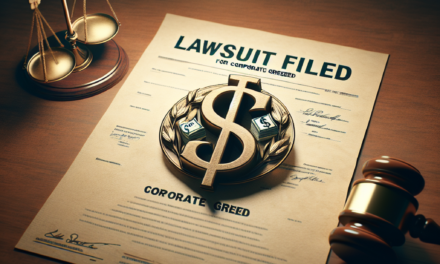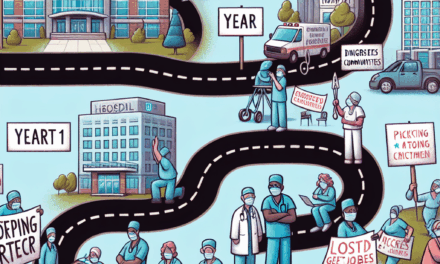RFK Jr. Unveils Selections for Key Vaccine Advisory Panel
In a significant move that has garnered attention across the political and medical landscapes, Robert F. Kennedy Jr. (RFK Jr.), a prominent figure in the vaccine debate, has announced his selections for a key vaccine advisory panel. This panel is expected to play a crucial role in shaping vaccine policy and public health strategies in the United States. As the conversation around vaccines continues to evolve, understanding the implications of RFK Jr.’s selections is essential for both supporters and critics of vaccination. This article delves into the details of RFK Jr.’s selections, the implications for public health, the historical context of vaccine debates, and the broader societal impacts of these developments.
The Significance of RFK Jr.’s Selections
RFK Jr.’s selections for the vaccine advisory panel are not merely a reflection of his personal beliefs but are indicative of a larger movement that questions the safety and efficacy of vaccines. His choices are likely to influence public perception and policy regarding vaccination in the United States.
One of the most significant aspects of RFK Jr.’s selections is the diversity of perspectives represented on the panel. By including individuals with varying backgrounds and expertise, he aims to foster a more comprehensive discussion about vaccines. This approach contrasts sharply with traditional panels that often feature a more homogenous group of experts who may share similar views on vaccination.
Moreover, RFK Jr.’s selections are likely to resonate with a growing segment of the population that is skeptical of vaccines. According to a 2021 survey by the Kaiser Family Foundation, approximately 23% of adults in the U.S. expressed hesitancy about receiving a COVID-19 vaccine. This hesitancy is often rooted in concerns about vaccine safety, efficacy, and the transparency of pharmaceutical companies.
Key Figures in RFK Jr.’s Advisory Panel
RFK Jr.’s advisory panel includes a mix of scientists, medical professionals, and advocates who have been vocal about their concerns regarding vaccines. Some of the notable figures include:
- Dr. Andrew Wakefield: A former physician whose controversial study in 1998 falsely linked the MMR vaccine to autism, leading to widespread fear and misinformation.
- Del Bigtree: A prominent anti-vaccine activist and producer of the documentary “Vaxxed,” which promotes the idea that vaccines are harmful.
- Dr. Sherri Tenpenny: An osteopathic physician known for her outspoken views against vaccines, claiming they cause various health issues.
- Dr. Peter Gøtzsche: A Danish physician and co-founder of the Cochrane Collaboration, who has criticized the pharmaceutical industry and its influence on public health.
- Dr. Robert Malone: A virologist who has raised concerns about mRNA vaccines and their long-term effects.
Each of these individuals brings a unique perspective to the panel, which could lead to a more nuanced discussion about vaccine safety and policy. However, their inclusion has also raised concerns among public health officials and advocates who fear that it may legitimize misinformation about vaccines.
The Historical Context of Vaccine Debates
The debate over vaccines is not a new phenomenon; it has deep historical roots that date back centuries. The first vaccine, developed by Edward Jenner in 1796, was met with skepticism and resistance. Over the years, various vaccine controversies have emerged, often fueled by misinformation and fear.
In the late 19th and early 20th centuries, the anti-vaccine movement gained traction in the United States and Europe, driven by concerns over government mandates and the safety of vaccines. The introduction of the smallpox vaccine led to widespread protests, and in some cases, legal battles over vaccination mandates.
Fast forward to the late 20th century, and the emergence of the internet has transformed the landscape of vaccine debates. Misinformation can spread rapidly through social media platforms, leading to increased vaccine hesitancy. The infamous Wakefield study, which falsely linked vaccines to autism, is a prime example of how misinformation can have lasting consequences on public health.
Today, the COVID-19 pandemic has reignited vaccine debates, with the rapid development and deployment of vaccines leading to both support and skepticism. RFK Jr.’s advisory panel is a continuation of this historical trend, reflecting the ongoing struggle between public health initiatives and individual beliefs.
The Implications for Public Health Policy
RFK Jr.’s selections for the vaccine advisory panel could have significant implications for public health policy in the United States. As the panel convenes and discusses vaccine-related issues, their recommendations may influence legislation, funding, and public health initiatives.
One potential outcome is the promotion of alternative vaccine schedules or exemptions for certain populations. Advocates for vaccine choice argue that individuals should have the right to make informed decisions about their health, including whether to vaccinate. This perspective could lead to increased pressure on lawmakers to consider more flexible vaccination policies.
Moreover, the panel’s discussions may also impact funding for vaccine research and development. If the panel leans towards skepticism about vaccine safety, it could divert resources away from traditional vaccine research and towards alternative approaches. This shift could have long-term consequences for vaccine innovation and public health.
Public health officials are already expressing concern about the potential ramifications of RFK Jr.’s advisory panel. The Centers for Disease Control and Prevention (CDC) and the World Health Organization (WHO) have emphasized the importance of vaccines in preventing infectious diseases. Any shift in public perception or policy could undermine decades of progress in vaccination efforts.
Public Reaction and Societal Impact
The announcement of RFK Jr.’s advisory panel has elicited a wide range of reactions from the public, healthcare professionals, and policymakers. Supporters of RFK Jr. view this as a long-overdue acknowledgment of vaccine skepticism, while critics warn of the dangers of legitimizing anti-vaccine rhetoric.
Social media platforms have become battlegrounds for discussions surrounding RFK Jr.’s selections. Proponents argue that the panel will provide a voice for those who have been marginalized in the vaccine debate, while opponents fear that it will further entrench misinformation and erode public trust in vaccines.
Case studies from various regions illustrate the societal impact of vaccine hesitancy. For instance, in 2019, a measles outbreak in New York City was linked to a decline in vaccination rates among certain communities. The outbreak highlighted the consequences of vaccine misinformation and the importance of maintaining high vaccination coverage to protect public health.
Furthermore, the COVID-19 pandemic has underscored the need for effective communication strategies to address vaccine hesitancy. Public health campaigns that emphasize transparency, community engagement, and education have proven effective in increasing vaccination rates. The emergence of RFK Jr.’s advisory panel may complicate these efforts, as it introduces alternative narratives that could sway public opinion.
Conclusion: Navigating the Future of Vaccine Policy
RFK Jr.’s unveiling of selections for a key vaccine advisory panel marks a pivotal moment in the ongoing debate over vaccination in the United States. As the panel convenes and discusses critical issues surrounding vaccine safety and policy, the implications for public health are profound.
The diverse perspectives represented on the panel may foster a more comprehensive discussion about vaccines, but they also raise concerns about the potential legitimization of misinformation. The historical context of vaccine debates serves as a reminder of the challenges faced in balancing individual beliefs with public health initiatives.
As society navigates the complexities of vaccine policy, it is essential to prioritize evidence-based discussions and transparent communication. Public health officials, advocates, and the general public must work together to address vaccine hesitancy and ensure that accurate information prevails in the face of misinformation.
Ultimately, the future of vaccine policy will depend on the ability to engage in constructive dialogue, uphold scientific integrity, and prioritize the health and well-being of communities across the nation. The stakes are high, and the decisions made by RFK Jr.’s advisory panel could shape the landscape of public health for years to come.




